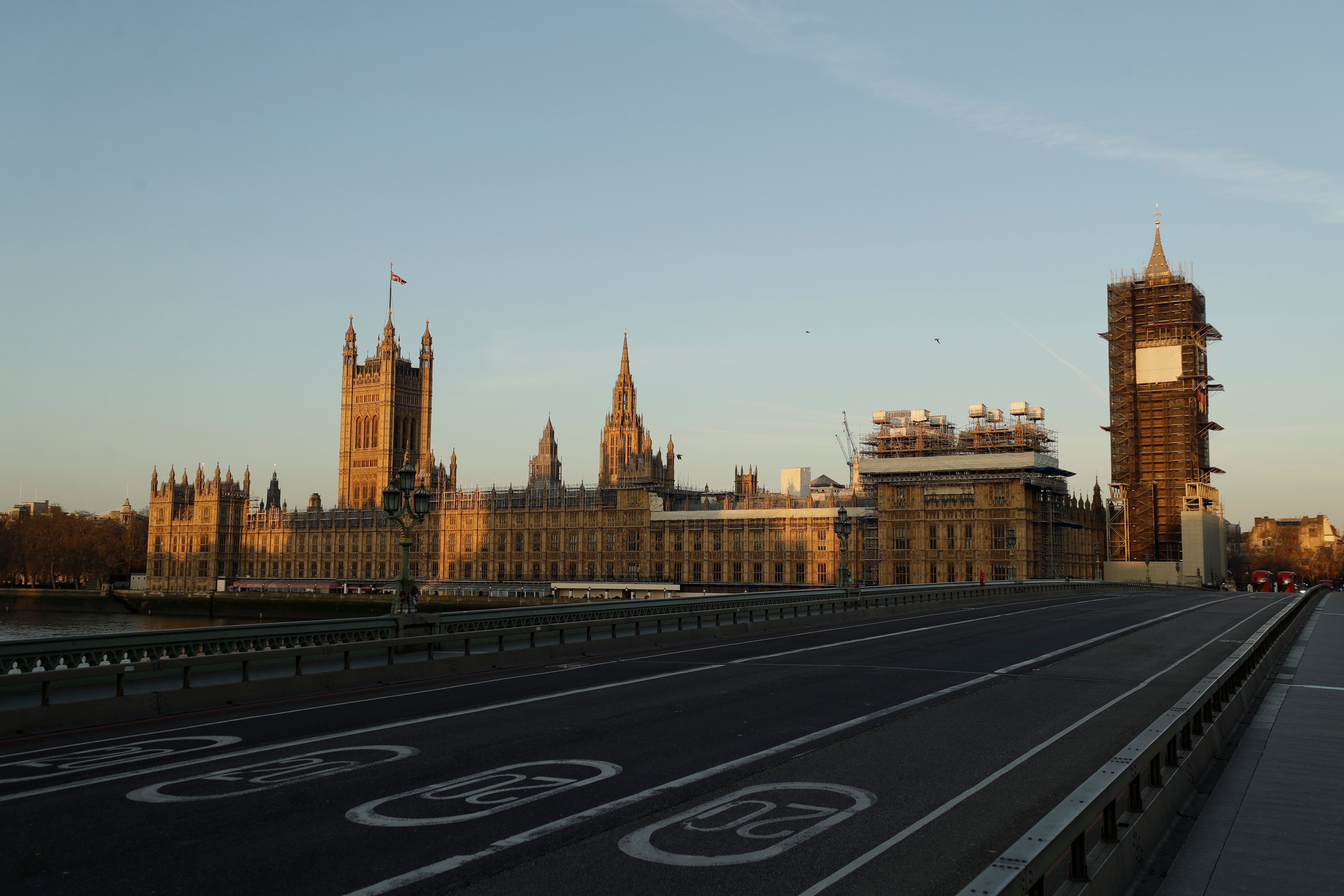AP PHOTOS: UK reflects on death toll a year after lockdown
The U.K. has a lot to reflect on a year after British Prime Minister Boris Johnson first announced that the country would go into lockdown to slow the fast-spreading coronavirus

The U.K. has a lot to reflect on.
A year to the day since Prime Minister Boris Johnson first put the country under lockdown to slow the fast-spreading coronavirus, a national day of reflection is being organized to remember the people who died after contracting COVID-19.
The U.K. has registered more than 126,000 virus-related deaths, the highest pandemic death toll in Europe and the fifth-highest worldwide.
Britain is set to observe a minute’s silence on Tuesday at noon. Residents are also being encouraged to stand on their doorsteps at 8 p.m. with phones, candles and flashlights to signify a “beacon of remembrance.”
London’s skyline will turn yellow when landmarks including the London Eye, Trafalgar Square and Wembley Stadium light up at nightfall. Other notable buildings that will be illuminated include Cardiff Castle and Belfast City Hall. Churches and cathedrals plan to toll bells, light thousands of candles and offer prayers.
“Today, the anniversary of the first lockdown, is an opportunity to reflect on the past year — one of the most difficult in our country’s history," Johnson said. “We should also remember the great spirit shown by our nation over this past year."
Few foresaw the scale of death and grief to come when Johnson, in a prime-time televised address on March 23, 2020, issued an “instruction” for the British people to stay at home.
Johnson, who within days of issuing the stay-at-home order tested positive for the virus and eventually ended up in intensive care at a London hospital, has faced criticism for delaying the first lockdown. Italy had been the first European country to go into lockdown earlier in March 2020, followed by Spain, Austria, the Czech Republic, Portugal. France, Belgium and most of the continent.
The delay, many argue, led to the U.K. recording the most deaths in Europe during the first wave of the pandemic, despite the valiant efforts of people working in the National Health Service which has undoubtedly endured its most difficult period since its creation in the aftermath of World War II.
Further delays in reimposing nationwide lockdowns following the easing of restrictions over the summer and fall have similarly been blamed for exacerbating Britain's high coronavirus death toll.
By the time a third one was ordered seven days before Christmas, a new, more contagious variant of the virus first identified in southeast England was becoming the dominant strain. January was the U.K.'s deadliest month of the pandemic.
Calls are growing, particularly among bereaved families, for the government to back a public enquiry into its handling of the pandemic. Johnson has said one will come but that it would be a distraction now.
Beyond the devastating death toll, the pandemic has seriously impacted every aspect of day-to-day life. Children spent many months cooped up at home with their often-agitated parents and siblings also struggling to deal with the realities of life under lockdown.
The pandemic has also battered the British economy, which suffered its deepest recession in more than 300 years. Pubs, restaurants, theaters, hair salons and all nonessential stores in England have been closed since early November, with the exception of 2 1/2 weeks in between lockdowns.
Despite recovering some of its lost output, the economy remains around 10% smaller than it was just over a year ago. There are fears that many businesses, particularly those serving the public, will not be able to survive for long once the government starts withdrawing its unprecedented financial support.
There is some hope that the rapid rollout of coronavirus vaccines — more than half the adult population has already had one of the two doses they need — will herald a period of lockdown easing in the weeks to come. Johnson insists his government's plan to lift restrictions will be guided by “data, not dates,” but that life could be very much more normal by the height of summer.
But confirmed cases are again increasing in much of Europe, and Johnson said Britain would also likely face a new wave of the pandemic
“Previous experience has taught us that when a wave hits our friends, it washes up on our shores as well," he said Monday.
___
Follow AP’s pandemic coverage at:
https://apnews.com/hub/coronavirus-pandemic
https://apnews.com/hub/coronavirus-vaccine
https://apnews.com/hub/understanding-the-outbreak
Bookmark popover
Removed from bookmarks